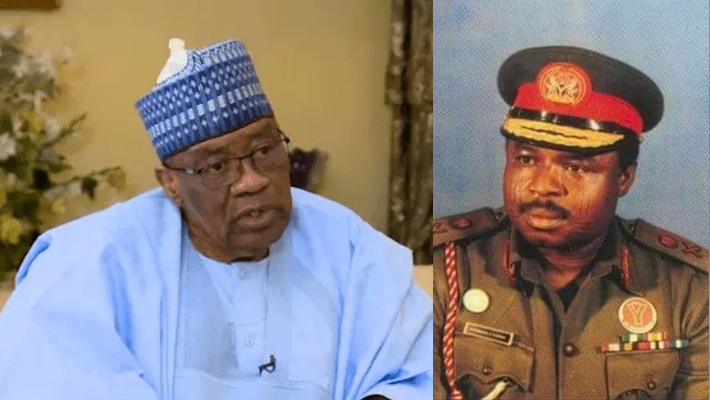
Former Nigerian military ruler, Ibrahim Badamasi Babangida (IBB), has defended his decision to execute his longtime friend and fellow military officer, General Mamman Vatsa, for allegedly plotting a coup against his regime in 1986.
In his newly launched autobiography, Journey in Service, Babangida described Vatsa as “boisterous” and “jealous,” claiming that envy had been a recurring theme in their relationship since their teenage years.
“I appointed General Vatsa as Minister of the Federal Capital Territory even though he was not part of the change of government that ousted General Buhari. Yet, I remained true to our friendship and bent backward to accommodate his excesses,” Babangida wrote.
He recounted how Vatsa had often disregarded his leadership, from their school days through their military careers, and suggested that his friend harbored resentment towards his success.
The former head of state said that despite their personal history, he felt betrayed upon learning that Vatsa was allegedly mobilizing to overthrow his government. Babangida maintained that the execution of Vatsa and nine other officers was necessary to protect Nigeria’s future.
“Vatsa and his nine other co-conspirators were executed in March 1986. They had planned a bloody coup which would have plunged the country into darkness. I had to choose between saving a friend’s life and the nation’s future,” he stated.
The execution of Vatsa remains one of the most controversial decisions of Babangida’s regime, with critics viewing it as a politically motivated elimination rather than a justified action.
Following the book’s release, Babangida has faced renewed criticism, with activist Omoyele Sowore calling for his prosecution. Sowore mocked the book’s title, suggesting it should be renamed Journey in Criminality.








